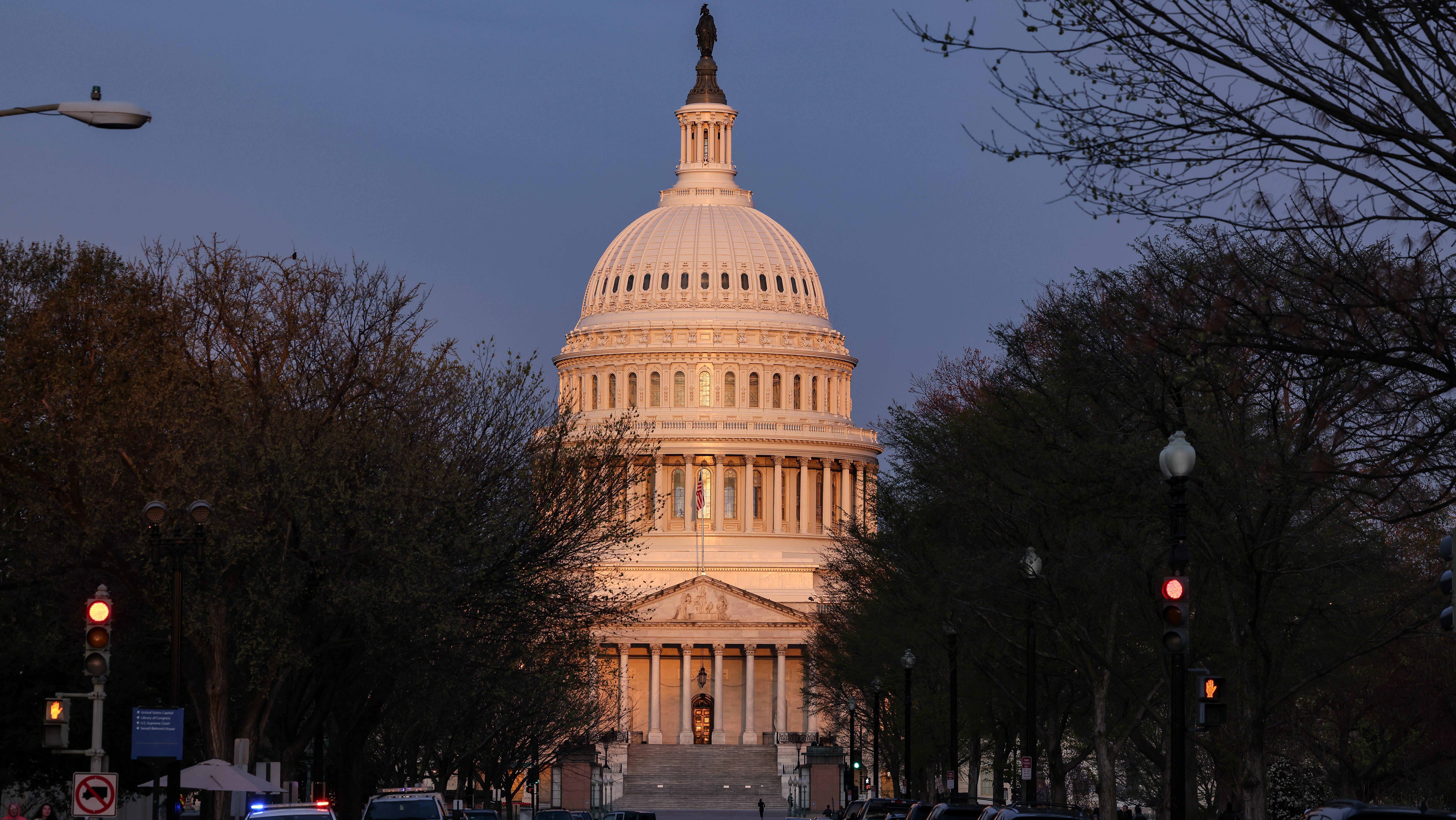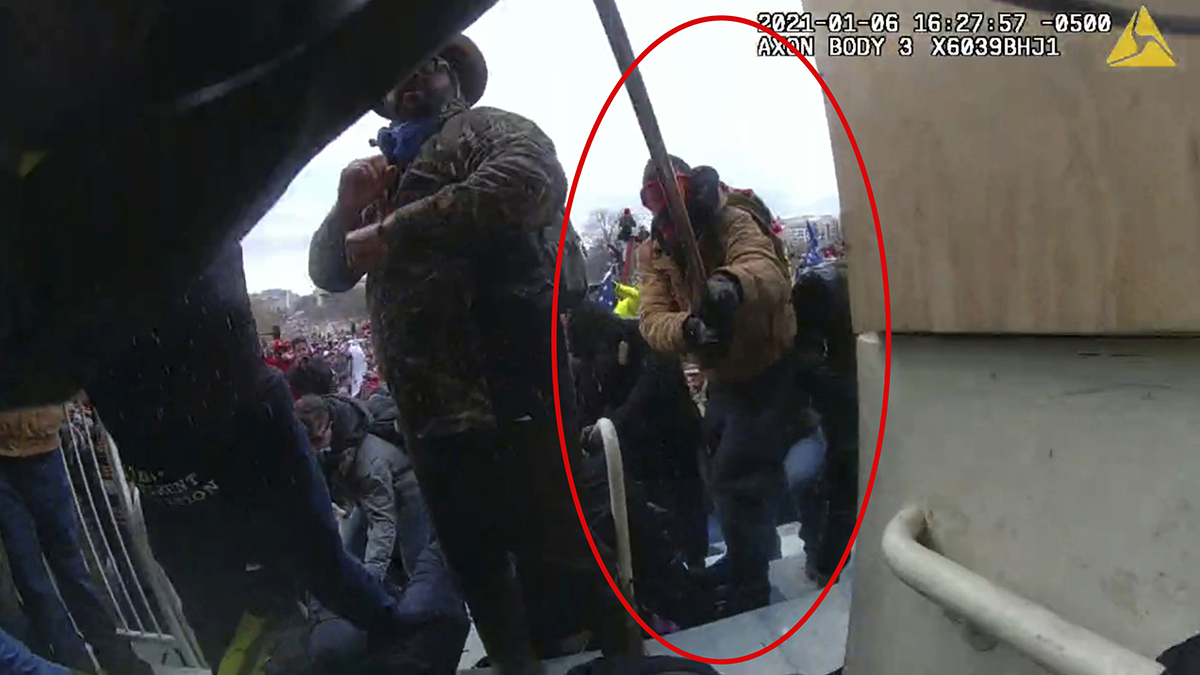James Comey, fired last month as FBI director amid a federal investigation into connections between Russia and the Trump campaign, is set to testify next Thursday at a highly anticipated congressional hearing that could shed light on his private conversations with the president in the weeks before his dismissal.
The Senate intelligence committee announced Comey's appearance, and a Comey associate said he had been cleared to testify by Robert Mueller, another former FBI director now overseeing that investigation as special counsel.
Also on Thursday, Democrats raised more questions about contacts during the campaign between the Russian ambassador to Washington, Sergey Kislyak, and President Donald Trump's attorney general, former Sen. Jeff Sessions, R-Ala.
Sessions, a close Trump adviser, withdrew from the Russia investigation in March after acknowledging two previously undisclosed contacts with Kislyak last summer and fall.
Sens. Patrick Leahy, D-Vt., and Al Franken, D-Minn., released a letter urging the FBI to investigate whether Sessions had falsely testified under oath when he said at his January confirmation hearing that he hadn't had any contacts with Russia.
"If it is determined that the attorney general still has not been truthful with Congress and the American people about his contacts with Russian officials during the campaign, he needs to resign," the senators wrote.
In addition to the two meetings that Sessions has acknowledged, the senators pointed to the possibility of a separate encounter at an April 2016 Trump campaign event that Sessions and Kislyak attended.
Politics
The Justice Department has acknowledged that Sessions was at the Mayflower Hotel event in Washington, but said there were no private or side conversations that day.
Comey's testimony probably will focus on the private meetings the former FBI director had with Trump and subsequently chronicled in internal memos and recounted to associates who have divulged their contents to The Associated Press and other media outlets.
Comey's associates have said Comey told them that Trump asked him at a January dinner to pledge his loyalty to the president and, at an Oval Office meeting weeks later, asked Comey to consider ending an FBI investigation into Trump's first national security adviser, Michael Flynn.
The White House has denied those characterizations.
The scope of Comey's testimony was not exactly clear, though Mueller was permitting him to speak publicly, an associate told the AP.
Mueller's investigation could include a look at the circumstances of Comey's firing, especially since Trump has said publicly that he was thinking of "this Russia thing" when he made the move.
It is possible that the Trump White House could try to raise executive privilege claims in arguing that any conversations with the president could not be discussed publicly.
A similar back-and-forth occurred before the testimony last month of former acting Attorney General Sally Yates, though the White House said it did not try to block her appearance.
On Capitol Hill, a rift continued between Rep. Devin Nunes, R-Calif., the chairman of the House intelligence committee, and Democrats on the panel. Nunes recused himself from the Russia investigation after he was criticized for being too close to the White House. He remains chairman, but Rep. Mike Conaway, R-Texas, is now leading the probe.
The committee on Wednesday issued seven subpoenas seeking testimony and information in its investigation into Russian activities during the election.
Four were issued to ousted national security adviser Flynn, the president's personal attorney, Michael Cohen, and their respective companies.
Three others were issued to the FBI, CIA and the National Security Agency seeking information on requests that former Obama administration officials made to unmask the identities of Americans named in intelligence reports. The requests were made by former CIA director John Brennan, former national security adviser Susan Rice and Samantha Power, the former U.S. representative to the United Nations, according to a congressional staffer, who was not authorized to disclose the information and spoke on condition of anonymity.
The committee's ranking Democrat, Rep. Adam Schiff of California, said Nunes approved the unmasking subpoenas without consulting the Democrats on the committee. Trump has alleged that Obama administration officials, for political reasons, asked to know the identities of Americans whose names are masked in intelligence documents.
"I don't know what the chairman has in mind here again because we weren't consulted, or why the chairman is picking these three people," Schiff told CNN. "Susan Rice has been a perennial target for the GOP for whatever reason."
He said Nunes recused himself from the investigation but still insists on having a final say in what subpoenas are issued in the Russia investigation. Schiff said committee rules allow Nunes to delegate that authority to Conaway. He said he hoped House Speaker Paul Ryan would intervene to make sure that happened.
A senior Republican staffer on the committee said Nunes signed the subpoenas for Flynn, Cohen and their companies, which were requested by Conaway and Schiff. He said the unmasking subpoenas are not part of the Russia probe.
The staffer said the Democrats were informed that the unmasking subpoenas were being issued. The GOP staffer, who was not authorized to discuss the issue publicly and spoke only on condition of anonymity, said the chairman has the authority to sign off on subpoenas and that all the committee rules were followed.



